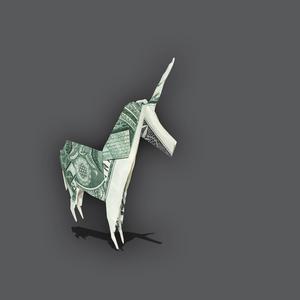
"As Outcome goes, so goes Chicago."
Those were the lofty expectations delivered by then-Chicago Mayor Rahm Emanuel in 2017 when announcing the nearly 400,000-square-foot office for startup Outcome Health, which in addition to the new space was getting its logo atop a 29-story building that would be renamed "Outcome Tower."
Outcome Health had bold plans to grow its headcount from 600 to 2,000 workers after landing a nearly $500 million equity investment from Goldman Sachs, Google's parent Alphabet Corp., Laurene Powell Jobs's Emerson Collective and Pritzker Group VC, the venture fund founded by Illinois Gov. J.B. Pritzker.
But Outcome Health never moved into the building, nor did it hire hundreds of new employees.
The company, once viewed as Chicago's next breakout startup, imploded. Its founders, Rishi Shah and Shradha Agarwal, were found guilty in April for their roles in a scheme to defraud both clients and investors, according to the Department of Justice.
“The scope of this fraud scheme is staggering," Special Agent-in-Charge Robert W. Wheeler Jr. said after a jury convicted the former Outcome Health executives in April, adding the "conviction is a fitting reminder that deceptive and illegal business practices have very real consequences."
But the Outcome Health case is the latest instance of federal prosecutors cracking down on startup misconduct, and experts say it could mark the end of the fake-it-til-you-make-it mantra that defined startup culture as venture capital investments soared over the past decade.
Experts say the founder-friendly term sheets and ease of fundraising may be contributing factors in the instances of startup fraud seen in recent years — leaving a black eye on the sector at a time when capital is getting harder to come by.
'Swimming without a bathing suit'
Theranos became the poster-child for the current era of startup misconduct when its founder Elizabeth Holmes was sentenced to more than 11 years in prison for defrauding investors in the blood-testing startup.
Since then, several more venture-backed tech firms have been investigated or sued for alleged fraud, including in cities beyond Silicon Valley. Former FTX CEO Sam Bankman-Fried is facing multiple fraud charges.
The founder of New York startup Frank was charged by the Department of Justice with defrauding JPMorgan Chase after the bank acquired the company for $175 million in 2021.
Rumby, based in Cincinnati, was sued by its investor Refinery Ventures last year, alleging Rumby's founder pocketed millions in funding for his own personal use, including a $1.7 million home. The founder of Milwaukee startup Exit 7C pleaded guilty last year to three counts of criminal wire fraud charges.
The fast-paced funding environment of the last decade could be partly to blame for the high-profile cases that have dominated headlines in recent years, said David Schonthal, an entrepreneurship professor at Northwestern University's Kellogg School of Management.
"The last 10 years in the startup ecosystem has been frothier than any that I could remember," he said. "In the last couple years in particular, there was a lot of available capital chasing a lot of deals. As a result of people wanting to have a seat at the table and in the boardroom of promising startups, or have an opportunity to invest in really hot promising startups, it is possible that some individuals sacrificed a bit of rigor in pursuit of those deals when it came to diligence."
Terms sheets became more "founder-friendly" in the last decade, Schonthal explained, giving founders more control even if they weren't majority owners of their business.
The nature of investing in startups is more about the potential of a company than its history, at times making due diligence difficult to begin with, Schonthal said.
He compared it doing a home inspection. On an older home, you can get a full perspective on its history, its problems and a clear picture of its value. With startups, the house is being built in real time or hasn't even been built at all.
"It’s like doing a home inspection on a house that's effectively a blueprint," he said.
Steven Kaplan, an entrepreneurship and venture capital professor at the University of Chicago's Booth School of Business, regularly tells his business school students the adage that "cash is more important than your mother."
Businesses can sometimes get away with unscrupulous behavior in frenzied funding environments, but when markets get tight, problems often come to light.
"When you have a frothy funding environment, it’s probably easier to hide things like you’re not making any money, than in an environment like today," he said. "It's the Warren Buffet line — it's when times are tough that we see who is swimming without their bathing suit."
Impact on startup hubs
Outside of the embarrassment of negative headlines and the implosion of a once-promising business, there's little impact of startup fraud on the overall health of a tech ecosystem, Kaplan said.
"In Chicago, I think Outcome Health got some good publicity for the city. And then it imploded several years ago. I think most people forgot about it," he said, adding that Chicago startups went on to see record venture funding in the years following the Outcome Health scandal.
"I think most people are like, what's Outcome Health? Most people don't have any idea what it was. I think it has minimal impact, and the venture funds involved are still investing."
Will we see more fraudulent startup CEOs surface without their swim trunks?
Don't rule it out, Kaplan said, especially as due diligence tightens amid a more challenging funding environment.
"Maybe there were some deals done in 2021 where there was FOMO (fear of missing out) and they had to move quickly and they didn’t see some things," Kaplan said. "I would say it’s possible we’ll see more (fraud) just because how people did deals during the frenzy period."







